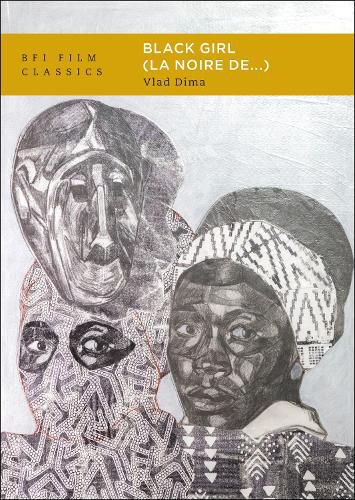Readings Newsletter
Become a Readings Member to make your shopping experience even easier.
Sign in or sign up for free!
You’re not far away from qualifying for FREE standard shipping within Australia
You’ve qualified for FREE standard shipping within Australia
The cart is loading…






Ousmane Sembene was one of the greatest, most groundbreaking filmmakers in the history of cinema, an acclaimed novelist, and the most renowned African director of the twentieth century. Black Girl was his brilliant, blistering debut. Released in 1966, it won the Prix Jean Vigo at the Cannes Film Festival that year. The film is about a young Senegalese woman, played powerfully by M'Bissine Therese Diop, who moves to France to work for a wealthy white family as a nanny, but quickly discovers that life in their apartment is a prison, both figuratively and literally; but it is also a searing, nuanced critique of the lingering colonialism in the supposedly postcolonial world.
Vlad Dima's study of Black Girl argues that the film helped to map the future of African cinema. He situates it within its postcolonial context, considering its adaptation from the eponymous short story first published in 1962. He examines the performances of Mbissine Therese Diop (Diouana), Anne-Marie Jelinek (Madame) and Robert Fontaine (Monsieur), considering the ways in which they embody or subvert postcolonial, French archetypes, and then goes on to examine the technical aspects of Sembene's filmmaking, such as his innovative use of framing and aural composition. Finally, he traces the film's lasting influence on African cinema, from Sembene's own Xala (1975), to Safi Faye's Mossane (1996), Joseph Gai Ramaka's Karmen Gei (2001), Jean-Pierre Bekolo's Saignantes (2005), and Mati Diop's Atlantics (2019).
$9.00 standard shipping within Australia
FREE standard shipping within Australia for orders over $100.00
Express & International shipping calculated at checkout
Ousmane Sembene was one of the greatest, most groundbreaking filmmakers in the history of cinema, an acclaimed novelist, and the most renowned African director of the twentieth century. Black Girl was his brilliant, blistering debut. Released in 1966, it won the Prix Jean Vigo at the Cannes Film Festival that year. The film is about a young Senegalese woman, played powerfully by M'Bissine Therese Diop, who moves to France to work for a wealthy white family as a nanny, but quickly discovers that life in their apartment is a prison, both figuratively and literally; but it is also a searing, nuanced critique of the lingering colonialism in the supposedly postcolonial world.
Vlad Dima's study of Black Girl argues that the film helped to map the future of African cinema. He situates it within its postcolonial context, considering its adaptation from the eponymous short story first published in 1962. He examines the performances of Mbissine Therese Diop (Diouana), Anne-Marie Jelinek (Madame) and Robert Fontaine (Monsieur), considering the ways in which they embody or subvert postcolonial, French archetypes, and then goes on to examine the technical aspects of Sembene's filmmaking, such as his innovative use of framing and aural composition. Finally, he traces the film's lasting influence on African cinema, from Sembene's own Xala (1975), to Safi Faye's Mossane (1996), Joseph Gai Ramaka's Karmen Gei (2001), Jean-Pierre Bekolo's Saignantes (2005), and Mati Diop's Atlantics (2019).